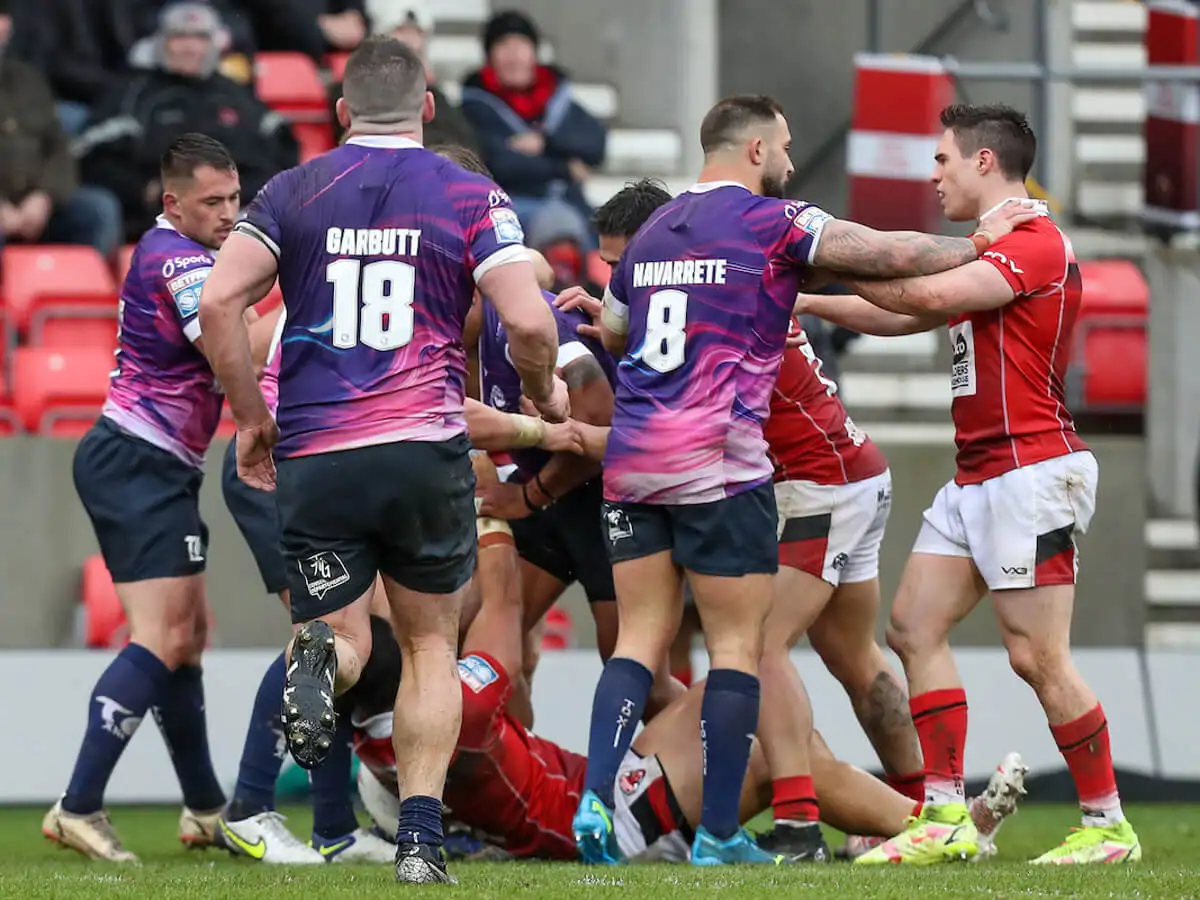Opinion: Should there be promotion and relegation from the Super League?

Over the weekend, the debate about promotion and relegation reared it’s head again with the question should Toulouse be protected?
The French side’s Head Coach Sylvain Houles was speaking over the weekend, believing his side should be granted an exemption from the drop.
Back in 2006, Catalans were given a three-year exemption from relegation. This was just as well, as they finished bottom in their first Super League season.
However, with their exemption, they were allowed to build in the Super League. They finished 10th the following season, and reached the Challenge Cup Final. But they were beaten by St Helens.
The Dragons then finished third in 2008. And minus a couple of dips, including finishing bottom in 2010 and securing their Super League status via the Million Pound Game in 2017, they have played at a good level.
Looking at the Dragons, there would be a case for allowing Toulouse an exemption to continue building the game in France. Particularly with the World Cup coming to France in 2025.
Should Promotion and Relegation change?

At the moment, the Super League runs on a system of one up and one down.
This is a system that has come and gone over the years. It was the system used in the Super League during it’s formation in 1996.
With the exception of between 1998 and 2001, when a couple of mergers were formed, promotion and relegation stayed until 2008.
That was when licencing was introduced, which stayed until 2015 when the Middle 8s came into play. Then in 2019, it went back to one-up-one down.
Over the years, there have been some clubs where they were not effected by relegation, and others that were.
Some teams like Workington, Oldham and Halifax have struggled. While others like Huddersfield, Castleford and Salford have all used it to their advantage.
Personally, I feel as though if promotion and relegation is to work, it needs to be more than one-up, one down. In the NCL, all of the leagues of three-up, three down.
It may not have to be that extreme, but a similar model to that of Scottish Football could benefit. It is one-up, one down automatically, with another place decided by a play-off.
The play-off consists of the play-off winners of the league below, and the side who finished second bottom. Although, this would be a similar model to the Million Pound Game, which was not well recieved by certain parts of rugby league.
Should there be a return to licencing?

Between 2008 and 2014, clubs were awarded three-year licences, off the back of what Catalans did.
There is also the argument that licencing should return. This is an argument I can see merit in, as it would seperate full-time, part-time and amateur teams.
If clubs are going from a full-time environment into a part-time one, then it is no wonder some of them struggle, particularly at first.
On the flip side of that argument, if the side relegated stays full-time, then it can lead to quite a one-sided league and you get a group of teams who aren’t good enough for one league but too good for another.
This would put a stop to that, and clubs can apply to go full-time and go to the next league, or go part-time and go a league down.
However, there are drawbacks to that. Widnes and Crusaders came into the Super League via licencing.
Crusaders decided not to go for a new licence in 2011 amid off-the-field problems. The owners could not fund the club anymore. Although a new club was formed in it’s place.
Meanwhile, Widnes had a couple of good seasons in the Super League, but were unable to build on it. There had been a decline since making the Super 8s in 2016, and were relegated in 2018.
Since their relegation, they almost went bust in 2019 but they were saved at the 11th hour. They have since had to go part-time and are still in the process of rebuilding the club.
Overall, there is no perfect solution to protect clubs from relegation. But I do feel like something has to change to stop leagues from getting stagnant.
RL Today: Every off-contract player for 2023 & Jackson Hastings for England?